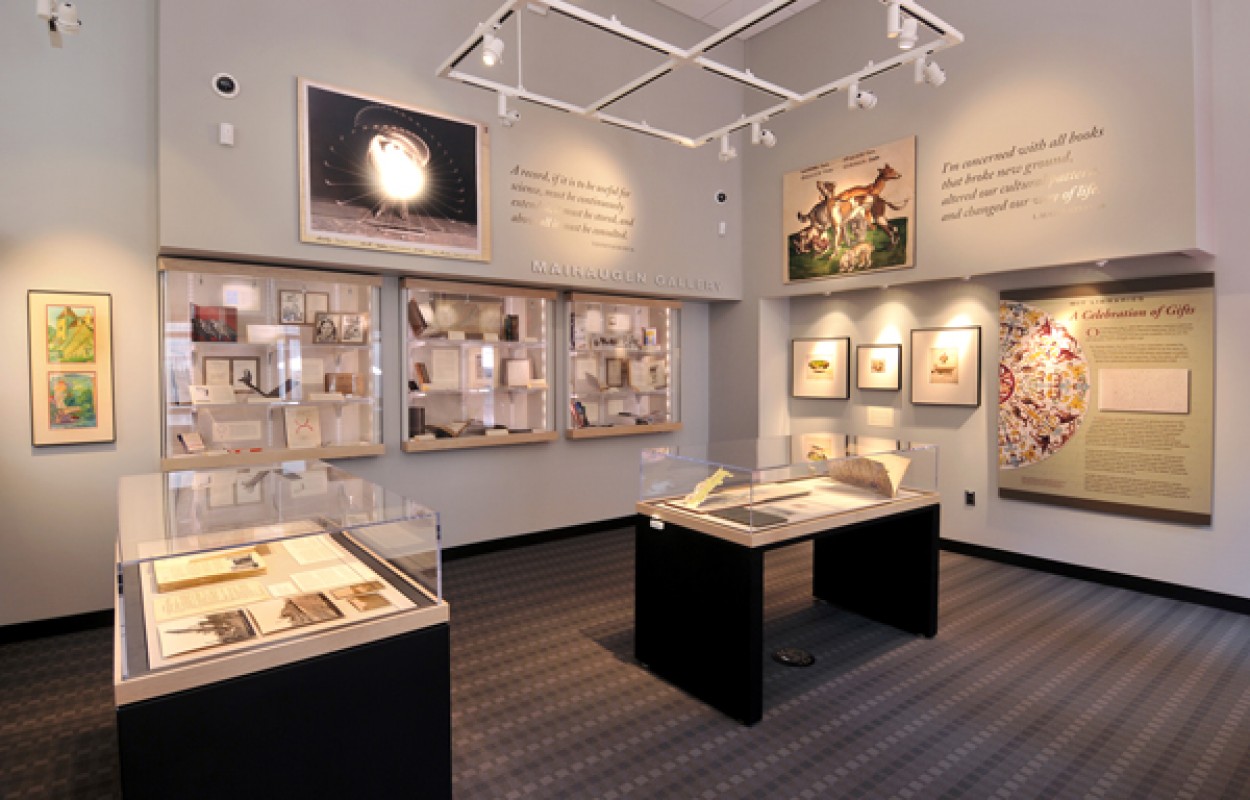It’s ALIVE!
It’s ALIVE! The Proto-Science Fiction Novel, curated by Jessica TranVo from Literature at MIT, celebrates work by international collage artists that reflect the essence of Mary Shelley’s Frankenstein in a 21st-century context. TranVo’s hands-on experience at the Kolaj Institute informed the exhibit. The illustrations on display cover topics like artificial intelligence, queerness, intersectional identities, and modern relationships. The exhibit also includes images from MIT Distinctive Collections’ 1831 edition of Frankenstein and modern homages to the novel.
